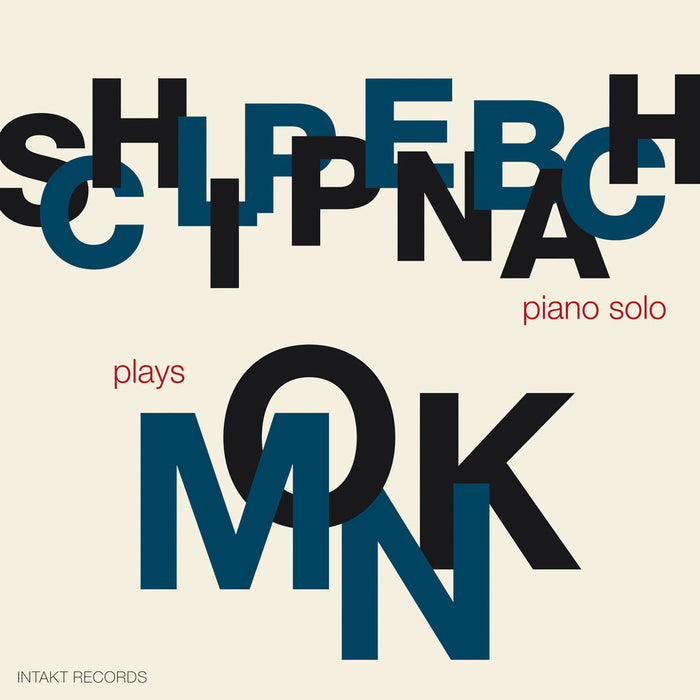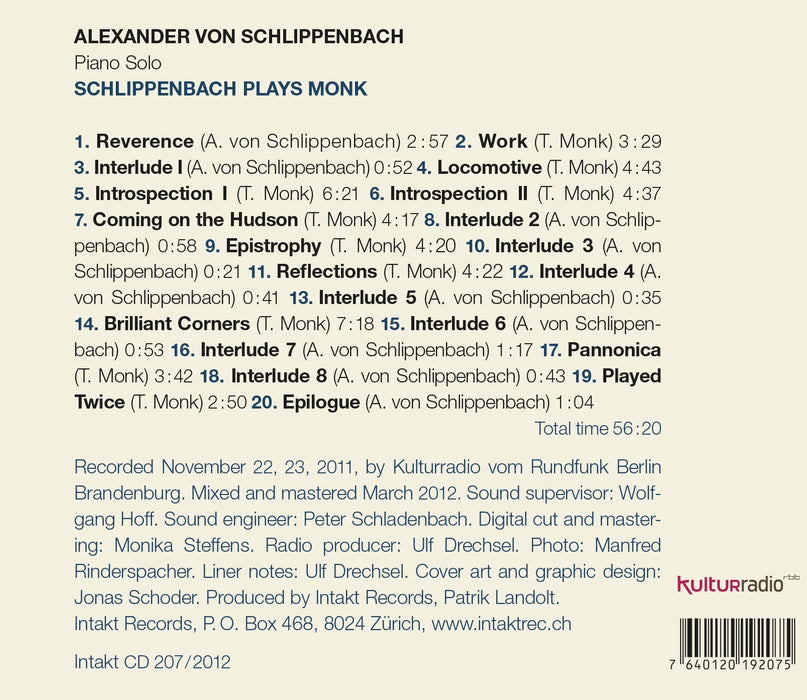
207: ALEXANDER VON SCHLIPPENBACH. Piano
Intakt Recording #207 / 2012
Recorded November 22, 23, 2011 by Kulturradio vom Rundfunk Berlin Brandenburg.
Original price
CHF 12.00
-
Original price
CHF 30.00
Original price
CHF 30.00
CHF 12.00
-
CHF 30.00
Current price
CHF 30.00
More Info
Album Credits


